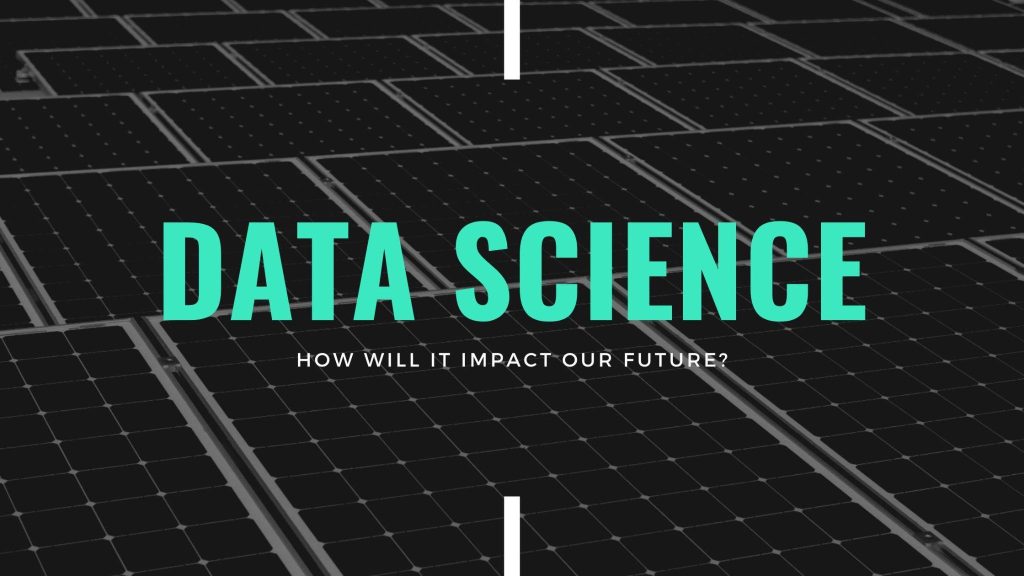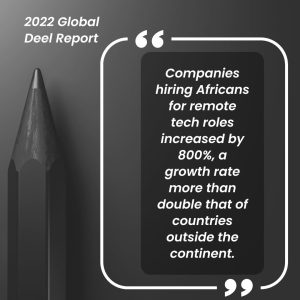
Data science is one of the most sought-after career paths worldwide.
Businesses are not only looking for programmers to fill the void.
They are scrambling for just about anyone that can make sense of the massive amounts of data they collect daily.
Banks need people who understand customer spending habits.
Hospitals rely on data to improve patient care.
Marketers use analytics to fine-tune campaigns.
According to the World Economic Forum, data-related jobs are expected to jump by 28% in the next 5 years.
This makes it one of the fastest growing career options worldwide.
And presents an opportunity for non-techies to enter the field and thrive.
Unlike jobs that can be automated or A.I. that can process numbers, data interpretation requires human reasoning.
A person fully understands business goals, identifies trends and presents realistic outcomes.
Nigeria is expected to generate over 50 million digital jobs by 2030, with data science playing a key role in this growth.
The Skills You Already Have are Available
People assume that breaking into data science requires deep technical knowledge.
Not exactly.
While programming skills like Python and SQL are helpful, they are not the only factors required for data scientists.
Many of the skills required are non-technical.
- Business Acumen: Understanding how companies operate helps uncover meaningful patterns in data.
- Communication: Data is useless without clear communication. Effective articulation translates numbers into narratives that drive decision making.
- Problem-Solving: Identifying patterns, spotting inefficiencies and assessing risks are essential in data science. This demands critical thinking more than coding skills.
Step by Step RoadMap to Becoming a Data Scientist
Step 1: Understand the Basics of Data Science
Data science involves analyzing raw information to uncover patterns, make predictions and guide decision-making.
It optimizes operations, improves customer experience and increases profitability.
Key concepts to get familiar with:
- Data Cleaning: Removing inaccuracies and inconsistencies from datasets.
- Visualization: Creating graphs and charts to represent trends.
- Machine Learning: Teaching computers to recognize patterns and make decisions.
- Statistics: Understanding probability distributions and hypothesis testing
Step 2: Choosing the Right Path
Not everyone learns the same way, so it’s important to pick a method that suits your schedule and budget.
- Self-Learning: Free courses from platforms like YouTube and blogs can introduce key topics.
- Online Certifications: Coursera, DataCamp and Udemy offer structured courses with certificates.
- Connect with Organizations: Connect with organizations like TalentMakers Foundation, who connect underprivileged youths to opportunities to learn and be mentored.
Step 3: Learn the Essential Tools & Skills
- Programming: Python and SQL play a leading role in the choice of programming language. R is optional but useful for statistics-heavy roles.
- Visualization: Power BI, Tableau, Matplotlib and Seaborn enhance insights.
- Machine Learning Basics: Understand supervised vs unsupervised learning, classification and regression models.

Step 4: Hands-On Experience
A practical application is important. Start with small projects and gradually take on challenging tasks.
- Personal Projects: Analyze publicly available datasets on Kaggle.
- Competitions: Join Kaggle contests to solve real problems and improve your ranking.
- Freelance Gigs & Open-Source Contributions: Good ways to gain experience and build credibility.
Step 5: Create a Portfolio & Resume that Stands Out
Having projects that showcase your skills is crucial. Employers want to see how you’ve applied them.
- Portfolio Tips: Create a personal website or host projects on GitHub.
- LinkedIn Profile: Use the featured section to highlight your achievements.
- Resume Writing: Emphasize impact rather than just technical skills.
Step 6: Start the Job Search Process
Once you have the skills and experience, it’s time to apply for roles.
- Entry-level Job Titles: Look for positions like Data Analyst, Business Intelligence Analyst or Junior Data Scientist.
- Networking: Connect with professionals on LinkedIn and attend industry meetups.
- Interview Prep: Practice SQL queries, Python challenges and case study presentations.
Common Challenges & How to Overcome Them
- Struggling with Self-Discipline While Learning
Learning data science requires consistency. Many beginners struggle to stay on track especially while balancing other commitments.
Setting a study schedule helps establish a routine. Pairing up with an accountability group or mentor keeps motivation high.
A study from a U.K. University found students who set clear learning goals are 42% more likely to complete online courses.
2. Feeling Overwhelmed
The sheer volume of online resources can be intimidating. Without a plan, it’s easy to get lost in endless tutorials.
Use a structured learning roadmap to break the journey into manageable steps.
Prioritizing foundational skills before jumping into complex topics ensures steady progress.
3. Rejections from Job Applications
Entry-level job seekers often face multiple rejections before landing a role.
Building experience through internships, freelance projects and contributing to open-source initiatives improves credibility.
Networking via LinkedIn and attending industry events also opens doors.
According to a 2023 report, 85% jobs are filled through networking because many job vacancies never make it to the public domain.

4. Imposter Syndrome
Many aspiring data scientists doubt their abilities, especially when transitioning from a non-tech background.
Always keep a record of your successes as a tangible reminder of your capabilities.
Recognizing progress and celebrating small victories builds confidence.
Conclusion
Transitioning into a data scientist does not require a 5 year computer degree—it’s about skill building and persistence.
Do you know tech companies like Google and IBM hire based on ability and not degrees?
According to a 2020 Burtch Works survey, 25% of data scientists have no formal computer science or statistics degree.
What truly matters is managing data, uncovering meaningful patterns and communicating insights effectively.
Businesses are constantly looking for ways to make smarter decisions.
Data science is a career that rewards curiosity, creativity and analytical thinking.
If you have a passion for problem-solving, it could be your next big opportunity.
About TalentMakers Foundation
TalentMakers Foundation is a non-profit organization dedicated to empowering young Africans with in-demand tech skills and global career opportunities.
Our mission is to equip the next generation of African tech leaders with the skills they need to thrive in artificial intelligence, data science, cybersecurity and emerging technologies.
Apply for our human capacity developmental programs, become a mentor or support our initiatives today!


